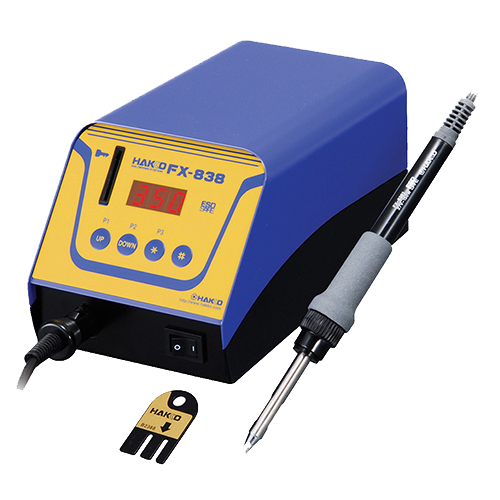
In the evolving landscape of electronics and manufacturing, automatic soldering machines are reshaping the way soldering is performed. With advancements in technology and increasing demand for efficiency, these machines have become indispensable across industries like electronics, automotive, and telecommunications. This blog explores the benefits, applications, and considerations of automatic soldering machines, providing insights into why they are an essential tool for modern-day manufacturing.
What is an Automatic Soldering Machine?
An automatic soldering machine is a sophisticated device designed to perform soldering tasks with precision and consistency. Unlike manual soldering, these machines automate the process, ensuring a high degree of accuracy while minimizing human intervention. Whether used for assembling printed circuit boards (PCBs) or intricate electronic components, automatic soldering machines deliver exceptional results at a faster pace.
Key Benefits of Automatic Soldering Machines
- Enhanced Precision and Consistency: Manual soldering often leaves room for human error, which can compromise the reliability of a product. Automatic soldering machines are programmed to deliver precise solder joints, ensuring uniformity across every piece.
- Increased Productivity: With automation, soldering machines can handle high volumes of work in significantly less time. This is particularly beneficial for industries requiring mass production, enabling companies to meet tight deadlines without sacrificing quality.
- Cost Efficiency in the Long Run: While the initial investment in an automatic soldering machine may seem high, it pays off by reducing labor costs, minimizing material wastage, and decreasing rework due to errors.
- Eco-Friendly Operation: Modern soldering machines are designed with energy efficiency in mind, consuming less power and producing fewer emissions compared to traditional soldering methods.
Applications of Automatic Soldering Machines
- Electronics Manufacturing: Perfect for assembling PCBs and electronic devices & ensures precise soldering of tiny, delicate components like capacitors and resistors.
- Automotive Industry: Used for soldering critical electronic systems, such as sensors and navigation devices, ensuring durability and performance.
- Medical Devices: Reliable medical device manufacturing starts with our precision automatic soldering machines.
- Telecommunications: Plays a role in manufacturing communication devices that require intricate and high-performance components.
Types of Automatic Soldering Machines
- Selective Soldering Machines: Best for soldering specific points on a PCB without affecting nearby components.Suitable for complex assemblies requiring pinpoint accuracy.
- Wave Soldering Machines: Ideal for high-volume production. Creates solder joints for all components on a PCB simultaneously by passing it over a wave of molten solder.
- Reflow Soldering Machines: Commonly used for SMD (Surface Mount Device) assembly. Ensures even soldering by heating the entire assembly in a controlled environment.
- Robotic Soldering Machines: Programmable arms enable precise, repeatable soldering for complex electronic assemblies.Highly flexible for customized soldering needs.
Choosing the Right Automatic Soldering Machine
Selecting the right soldering machine depends on your project’s scale and complexity. Here are key factors to consider:
- Nature of Application: Identify the type of components you’re working with to select the right machine for your needs. Are you assembling Surface Mount Devices (SMDs), through-hole components, or a mix of both?
- Production Volume: High-volume production lines benefit from wave or reflow soldering, while selective soldering is ideal for smaller, detailed projects.
- Budget: Analyze long-term ROI. While high-end machines may have a steeper upfront cost, their durability and efficiency often justify the investment.
Maintenance Tips to Maximize Longevity
- Regular Cleaning: Prevent residue build-up to ensure smooth operation.
- Periodic Calibration: Maintain consistent soldering quality by regularly checking and adjusting settings.
- Proper Storage: Protect the machine from dust and humidity when not in use.
- Routine Inspections: Identify and resolve wear-and-tear issues early to avoid costly repairs.
Why Choose Sumitron for Automatic Soldering Machines?
Sumitron is a trusted name in providing top-notch soldering solutions tailored to meet the diverse needs of modern industries. With a focus on delivering cutting-edge technology and unmatched after-sales support, Sumitron ensures that your investment in automatic soldering machines translates to optimal performance and long-term reliability.
Final Thoughts
The automatic soldering machine is not just a tool but a transformative solution that enhances productivity, precision, and efficiency in manufacturing. By investing in the right soldering machine and partnering with a reliable provider like Sumitron, businesses can stay ahead in today’s competitive market.
Take the leap into automation and experience the future of soldering today!
Read Also This Blog


